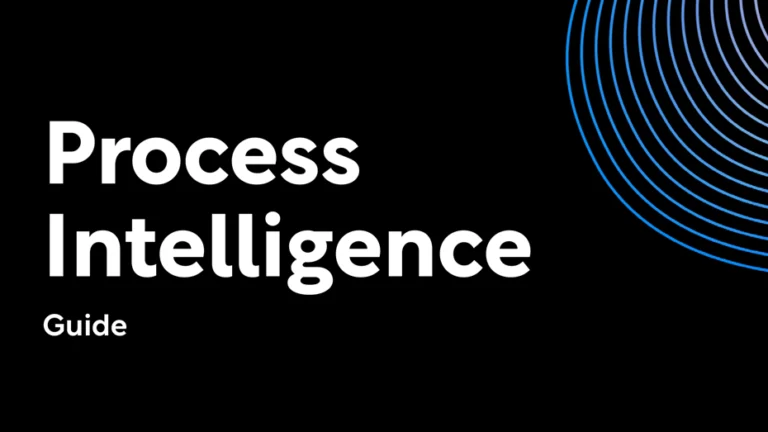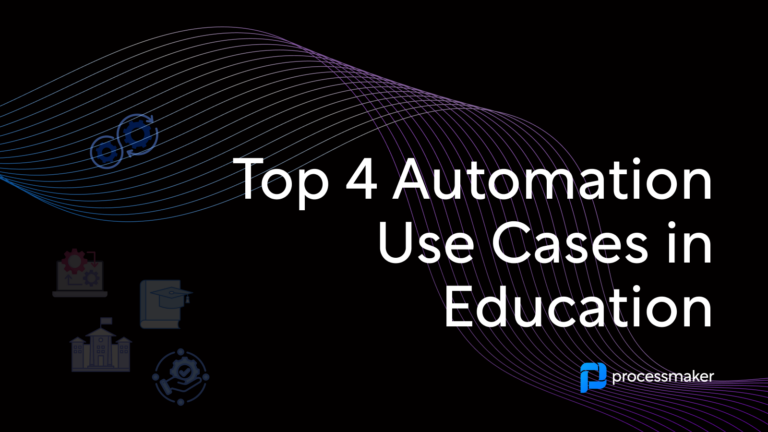The roles of executives in the finance sector continue to evolve to ensure future-proofing for associated organizations. As a result, robotic process automation (RPA) has become more crucial than ever. In terms of repeatable, redundant tasks that consume the most time and energy, RPA can take over allowing CFOs and employees to focus their efforts more strategically. Once RPA is implemented, the benefits are quick to manifest.
Essentially, human inputs are replaced with intelligent robots so business objectives can be reallocated from low-value-added tasks to more complex processes. Further, RPA mitigates human errors while improving operational efficiencies. So then, where can RPA be implemented in finance and how? Let’s find out.
How RPA positively impacts financial institutions
Consider the effect of relieving an entire department of redundant and manual processes. Then, picture a technology that could enable even non-technical employees to automate repetitive processes. You can probably already envision the vital impact to the overall effectiveness of financial operations. You might also expect the following:
- Continuous execution
- Removal of human scheduling and scaling issues
- Decreased HR costs
- Improved turnaround times
- Reduced staff onboarding and training costs
The opportunity to automate labor-intensive, rote processes and bottlenecks can demonstrate an almost-immediate ROI. Yet, it is an agile approach that also realizes the most value. What comes next may often occur in the form of a more transformative digitization. How can finance benefit from RPA? It seems a natural fit given the massive amount of relatively simple but high volume manual processes that must be executed daily such as card activations, reconciling accounts, and even OCR.
Manually updating financial data should be a thing of the past. Keying and re-keying information is not the most effective use of company time. Data-gathering, copy-and-paste, and data entry are all candidates for RPA, your intelligent robot workforce.
Here are 5 high-value RPA use cases in finance
Data management: It is often difficult to deliver financial and operational performance data on a timely basis. There are the tasks of collection and processing as well as aggregating and analysis which are all business-critical activities. Data also needs to be cleansed for frictionless formatting between various applications to ensure reports are easier to read. RPA can be utilized to take over all of these tasks to help improve turnaround time and the organization of relevant business insights.
Account reconciliation: RPA can manage processes such as uploading transaction data from multiple systems and even formats. It can execute exception research, handling, and data validation. Additionally, RPA can be assigned to create, balance, note, and remediate discrepancies within journal entries. In terms of financial closing and reporting, RPA can create and deliver financial data to regulatory bodies whether they be individuals, systems, or departments. RPA can mitigate the redundancy of posting data from applications like Excel to subledgers.
Card activation: Card activation is one of the most repetitive processes in finance. You need inter-departmental coordination, compliance checks, data entry, consistency of data, and more. Needless to say, all of these tasks are mind-numbing. Nonetheless, they are required for card automation. Prior to RPA, processing was often executed under overwhelming time pressures due to increasingly impatient consumers and a competitive marketplace.
In contrast, RPA will not be deterred by any complaints or human error. Any inconsistencies can be addressed immediately, leading to an improvement in overall resolution handling and timing. Anyone who has worked in finance understands the potential negative impact of human errors, which are usually difficult to avoid when spending hours on data entry.
It simply makes sense to utilize intelligent automation for both the institution and the employee. Not only will RPA speed up time-consuming processes, while keeping errors at bay, but this will also pay off in having a higher customer satisfaction rate and alleviating your staff of unnecessary stress.
Align bank and treasury systems: Every bank account balance has to be fed into treasury systems, but there is a language used by both systems. Treasury systems must be able to read banking systems and vice-versa. RPA can format bank data so that it reads in a language treasury systems will understand. RPA can also return the treasury system reports to bank employees so that everyone is on the same page.
RPA with Optical character recognition (OCR): RPA and OCR were made for each other as OCR also helps to solve issues related to human data entry. By using linguistic, visual, and statistical processes, OCR can instantly convert images of text into a digital version. OCR technology is simply more accurate, faster, and much more cost-effective than human data entry.
Invariably, RPA and OCR are complementary and many organizations in the financial sector are already using both to automate these types of processes from initiation to completion. Used in conjunction, they create the types of operational efficiencies and competitive advantages needed for businesses who want to thrive not just today but in the future as well.
In summary
Robotic Process Automation use cases offer the ability to learn more about where RPA can be implemented without having to take the more difficult route of learning from the mistakes. You can take these examples of RPA in finance to determine which of your tasks are ready for automation and way. So then, you can start working on a concrete strategy for attaining strategic objectives enhanced by RPA to drive sustainable growth and predictability. Minimize business risk with more accurate data entry and reporting, meeting compliance mandates much more easily and quickly. Exchange swivel chair tasks for strategic activities that increase employee engagement. Once you have your time back, how will you use it?





